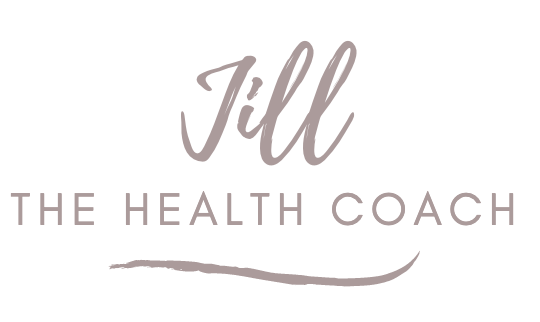Reposted from February 19, 2015
It’s all over the news–yes, you can eat the WHOLE egg now as studies show that cholesterol in food does not necessarily lead high cholesterol and to cardiovascular disease. The Dietary Guidelines Advisory Committee just declared that cholesterol is “not considered a nutrient of concern for over-consumption.” Finally, it’s time to stop blaming the real, whole foods that have been around for thousands of years.
It seems as though we all “know” that cholesterol is “bad” for you. We see countless commercials for it every day that cholesterol is “bad” but we shouldn’t worry because there are so many drugs out there that will help bring down our levels. But what is cholesterol and what makes it bad for you?
Cholesterol is a type of fat (lipid) that forms the lining of all cell walls and provides a protective sheath around the peripheral nerves. The liver produces cholesterol at a rate dictated by the body’s need. When toxins are present in the blood stream the liver produces low-density lipids (LDL), which is considered the “bad” cholesterol. The LDLs attach themselves to the toxins and bind to them so that the toxins will be unable to cause damage to the body. The HDL, or high-density lipids are the “good” cholesterol and it is sent in to sweep up the toxin-loaded LDL so it can be cleared out of the body by way of the bowel. Then, the LDL levels can return to normal. Yes–we do NEED cholesterol! Lowering our LDL without addressing the toxic cause may expose the body to more toxins that cannot be swept away without enough LDL. Cholesterol is also important in the production of cell membranes, all the steroid hormones (testosterone, estrogen and progesterone), vitamin D, and the bile acids that help digest fat. Cholesterol also helps your brain form memories and is vital to your neurological function. So, why is LDL bad? If too much needs to be constantly produced, it can build up plaque in the arteries.
How do we know if our cholesterol is too high? The recommendations are for total cholesterol to be lower than 200, which has been reduced from 300 over the years. The only problem is that there are even more risks related to low cholesterol than high cholesterol (with those who have no prior history of CVD).
cholesterolA 3 year study on 11,500 patients showed that low cholesterol resulted in increased lung cancer , other cancers, higher risk of cardiac death (that’s heart attacks for LOW cholesterol, folks!), erectile dysfunction and infertility, and a loss of memory and mental focus.
A Swedish researcher discovered that individuals with low cholesterol suffer from frequent and severe infections while individuals with higher cholesterol had a lower mortality than the average population
A 30-year follow-up of one of the original studies linking cholesterol and heart disease showed no correlation between high cholesterol and mortality, but did show correlation between low cholesterol and mortality. Death rates from CHD increased 14% for every 1mg/dl drop in total cholesterol per year
High cholesterol readings are associated with protection from neurotoxins and cancer protection according to the Journal of the American Medical Association
The above doesn’t even take into consideration some nasty side effects of the statins themselves such as:
Headache Diarrhea
Dizziness Heartburn
Nausea/vomiting Leg pain
Constipation Rash
Insomnia Pain in muscles
Shoulder/back pain Blurred vision
Chest pain Cough
Dry mouth Arthralgia (severe joint pain)
Furthermore, statins deplete the body’s production of coenzyme-Q10 which must be replaced. The Co-Q10 will protect you from developing muscle aches, fatigue, cardiomyopathy or exacerbation of congestive heart failure. As a matter of fact, Physicians in the U.S. rarely inform people of this risk and only occasionally advise them to take a CoQ10 supplement. Canadian law requires that all statins carry a label warning of the risk of CoQ10 depletion.
The American Heart Association doesn’t even cite any type of study stating that high cholesterol is a high risk for cardiovascular disease in patients with no prior cardiovascular disease. It lists it as a risk factor and listsstatistics of serum levels of the population but shows No Relationship to CVD
The burning question is why over 30 million people are being prescribed statins for this $20-$30 billion industry with no studies proving their effectiveness against heart disease in people with no prior history of CVD.
In the end, you need to take your own health into your hands and determine if there is really reason to take statins and risk the damaging health effects from these drugs. The fact is that 75 percent of your cholesterol is produced by your liver, which is influenced by your insulin levels. Therefore, if you optimize your insulin level, you will automatically optimize your cholesterol.
Reduce grains and sugar and processed foods. Eat the right foods for your nutritional type and consume a good portion of raw food.
Make sure you are getting plenty of high quality, animal-based omega 3 fats, such as krill and fish oil.
Other heart-healthy foods include olive oil, coconut and coconut oil, organic raw dairy products, eggs, avocados, raw nuts and seeds, and organic grass-fed meats.
Exercise daily.
Address your emotional challenges and stressors.
Avoid smoking or drinking alcohol excessively.
Be sure to get plenty of good, restorative sleep.
All material in this newsletter is provided for information only and may not be construed as medical advice or instruction. No action or inaction should be taken based solely on the contents of this publication;instead readers should consult appropriate health professionals on any matter relating to their health and well-being. The information provided has not been approved the Food & Drug Administration and is not intended to diagnose, treat, cure, or prevent any illness or disease.

